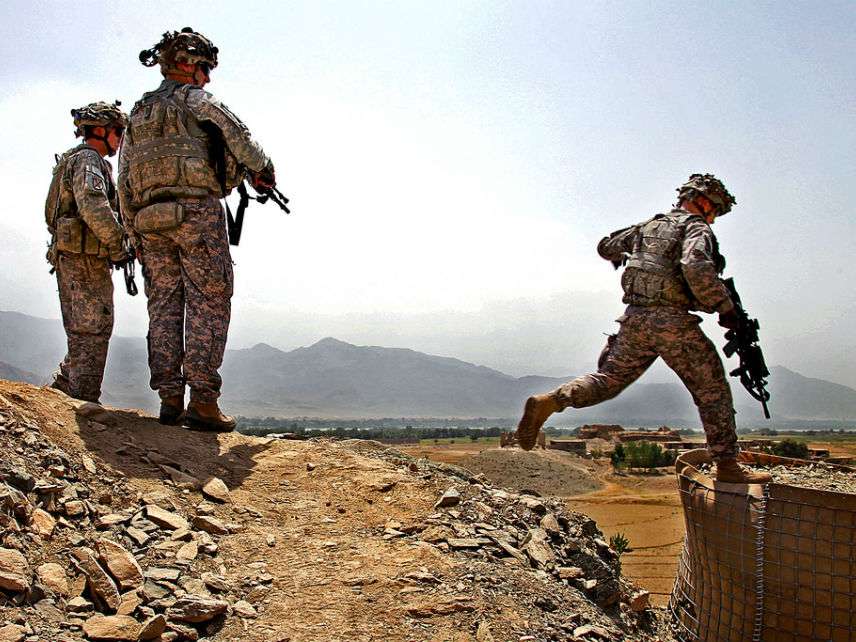It's Past Time for a New Vote on the War on Terror
The Trump administration pushes back on the idea of a new AUMF; Congress should push harder.

The White House is pushing back against the idea that it needs a renewed authorization for the use of military force (AUMF) to cover the ongoing military response to the Islamic State in Iraq and Syria (ISIS). The administration is apparently concerned that a new AUMF would impose limits on its military actions around the world.
Well, yes. That's the whole point.
The AUMF passed after 9/11 was meant to target Al Qaeda, the Taliban in Afghanistan, and their "associated forces"—the groups the U.S. held responsible for the September 11 attacks. Since then, the executive branch has invoked the AUMF to justify almost every military intervention that Washington has undertaken.
The two major exceptions are the Iraq War of 2003–2011, for which President George W. Bush sought and received a specific AUMF, and the intervention in Libya, which saw President Barack Obama waving away his lack of authorization by citing support from the United Nations and other international bodies. Both misadventures show why it's important for Congress to assert its role in the war-making process.
In the first case, the Iraq-specific AUMF helped to define the administration's rationales and goals for war, and it placed members of Congress on the record for or against the conflict. This made it easier to hold the administration accountable to its own terms, and it gave voters some insight into their representatives' stances.
The lack of an AUMF in Libya, on the other hand, made it even more difficult for Congress to exercise substantive oversight of the conflict. It also ensured that there would be little to no accountability for anyone in the Obama administration for the failures in the Libya campaign and the mess the U.S. helped to make.
Unfortunately, if a Republican-controlled Congress was unable to exert any oversight over the wars of a Democratic president they campaigned against in almost every other policy domain, and who said he welcomed a new AUMF, it's even less likely to do any of those things with a Republican president in charge.
This is particularly disappointing given that both Obama and the 114th Congress knew pretty early last year that there was a 99.99 percent chance the next president would be either Donald Trump or Hillary Clinton. Obama spent the campaign warning Americans that Trump was "uniquely unqualified" for the office of the president, while Republicans had spent years up to that point investigating Clinton's blunders in Libya and elsewhere. Yet they did nothing to impose those missing limits.
Even after the "uniquely unqualified" Trump was elected, Obama made no effort to impose any limits on his successor. Instead he declared that the 9/11 AUMF also covers U.S. operations in Somalia. As he has elsewhere in the war on terror, Trump then ramped up the intervention.
At this point Trump, who on the campaign trail said he'd be open to an AUMF—Trump took a lot of positions on the campaign trail, not all of them consistent with one another—may be the only one who could make congressional oversight or limits on the war on terror possible. Not by supporting for such a move again (that's highly unlikely) but by alienating members of Congress enough that they finally assert their constitutional role.
The most recent effort to pass a new AUMF is being led by Sens. Tim Kaine (D-Va.) and Jeff Flake (R-Ariz.), who last tried to pass a new AUMF in mid-2015.


Show Comments (24)